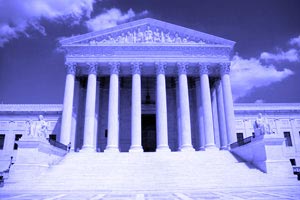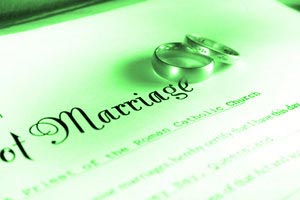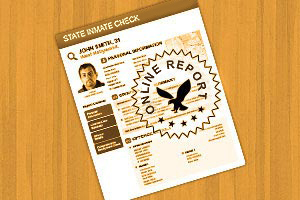New Jersey Public Records
The New Jersey State Records website provides every New Jersey resident with tools to access public records. This ensures New Jersey residents are able to use their right to access and obtain public records in accordance with the New Jersey Inspection of Public Records Act, which presumes that all government information and records are available to the public.
The goal of this website is to provide access to these public records in an expedient and concise manner and without requiring personal information unless the requested information is ruled confidential by law or court decision.
New Jersey State Records contain information about criminal records, court records, and vital records, including over 20 million transparent public records.
Are New Jersey Records Public?
Yes, most records maintained or generated by government officials are open to the public in New Jersey. The New Jersey Open Public Records Act ("OPRA') asserts that all records shall be made available for inspection, examination, or copying except where protected by law or court order. Government records may mean printed documents, maps, drawings, plans, photographs, microfilm, or any information stored digitally.
What is Considered Public Information in New Jersey?
New Jersey public records may include:
- New Jersey criminal records
- New Jersey sex offender information
- New Jersey bankruptcy records
- Public New Jersey court records
- New Jersey vital records
- Public New Jersey property records
The New Jersey Open Public Records Act lets citizens inspect or copy records generated or maintained by government agencies. To obtain a public record, individuals can perform a paid or free public data search via a custodial government agency's public records database, if any is available. Alternatively, one can submit a Public Records Act request to the government agency via mail or in person.
How Do I Find Public Records in New Jersey?
Citizens of New Jersey can find public records by following several quick steps.
Step 1. Determine the type of record required.
First, determine the record of interest and the type of information that is being sought. Generally, public records are classified in connection with the type of information they hold. Examples of records include:
- Criminal History Records: They include information available to the public pertaining to a person's arrest, sentence, court verdict, and probation. The New Jersey State Police is the custodian of these records.
- Court records: New Jersey court records contain a compilation of court documents, such as reports, proceedings, allegations, transcripts, sworn statements, declarations, and affidavits documents. These records are usually preserved by the New Jersey Judiciary Court System.
- Vital records: Vital records include information on life events. They are available to the public on request. Examples of public records in this class include; birth certificates, marriage certificates, and death certificates. These records can be accessed at the New Jersey Department of Health.
Step 2. Determine the government agency in the custody of the public records.
There are distinct government agencies and state departments that are responsible for generating and preserving various types of public records in New Jersey. For example, the New Jersey Department of Health is the custodian of vital records, which include; birth records, death records, and marriage records, while the New Jersey Judiciary Court System is charged with the responsibility of the maintenance of court records. In addition, records on education and schooling are developed, organized, and preserved by the New Jersey Department of Education.
Step 3. Determine accessibility
There are some public records that are privileged by law and can only be obtained by court order, these public records are not readily available to the public. If a public record contains sensitive information on its subject, it may be protected from public view. Records in this category may include adoption records, reports on minors, birth certificates, juvenile delinquency records, reports documented by a physician pertaining to the medical condition of an alleged disabled adult, and others. Consequently, any interested individual will have to confirm that the record being sought is accessible.
However, the above records may not be totally inaccessible but may be made available to qualified persons in line with the law. Qualified persons may include the individuals themselves as well as close relatives of the individual in question. Law enforcement agencies or any other person that is authorized by court order after going through a certified process may also be granted access. Limited information is granted in some cases, this can be categorized as private or publicly restricted information.
Step 4. Determine the Availability.
While some records are available on the internet via an online platform that is set up by the government agencies in charge, others are not. Hence, it is necessary to direct requests to the specified custodian of the record by stopping by their office to obtain the records.
Step 5. Contact the Record Holder
Submit a request in writing: Write a formal letter addressed to the government agency in charge, specifying and describing the record of interest. In some cases, the requester may be required to fill a Freedom of Information Act (FOIA) form provided by the government agency in charge of the submission of requests. Requests may also be submitted in person or by email, regular mail, certified mail, or by fax to the specific New Jersey department maintaining the record.
The requestor may be required to submit a recognized valid means of identification of themselves. This is to ascertain that the requestor is truly the person whose information is on the records requested. It may also be necessary to provide an attestation that is signed under penalty of perjury confirming the requestor is who they say they are.
Step 6 Pay fees (If Required)
The FOIA law permits government agencies to charge a fee for the request of copies of public records. The price to be paid by the requestor isn't fixed. It varies from agency to agency. A requester has the liberty to apply for fee waivers or a reduction in the fee. However, the government agency provides information on who may apply for a fee waiver.
Using Third-Party Sites to Find Public Records in New Jersey
City Records
Public city records may also be accessible from third-party websites. These non-government platforms come with intuitive tools that allow for expansive searches. Record seekers may either opt to use these tools to search for a specific record or multiple records. However, users will need to provide enough information to assist with the search such as:
- The name of the subject involved in the record (subject must be older than 18 or not juvenile)
- The address of the requestor
- A case number or file number (if known)
- The location of the document or person involved
- The last known or current address of the registrant
Third-party sites are not sponsored by government agencies. Because of this, record availability and results may vary.
Public Records
Public records can also be accessed from third-party websites. These third-party public records aggregate websites offer search services that are non-geographically limited, making the search result expansive and typically straightforward. However, users will need to provide enough information to assist with the search, such as:
- The name of the subject involved in the record as long as the subject is not a juvenile
- The last known or location of the record subject
Third-party public records search websites are not government-sponsored services. Therefore, the availability and accuracy of results can vary.
How Do I Look Up Public Records in New Jersey for Free?
Some New Jersey public records can be viewed online at no cost. Residents can carry out free public records searches via the official public record platforms of state government agencies to find these records. For instance, the New Jersey Department of Corrections maintains an online offender search tool for citizens who wish to find inmate information. Record seekers can search the database with an inmate's name or number. Similarly, the New Jersey State Police keeps the public updated on the location of high-risk sex offenders via an online internet registry. Finally, several county clerk/recorder offices provide online search engines to carry out public record searches in New Jersey.
These online platforms, however, do not always provide full comprehensive information on the record being sought. Only a vital section of the record is revealed. For example, if a request is made for the death record of a person, only records of the person's name, date of birth, and date of death may be found. However, when a request is made for a detailed public record, an affordable fee may be charged.
















